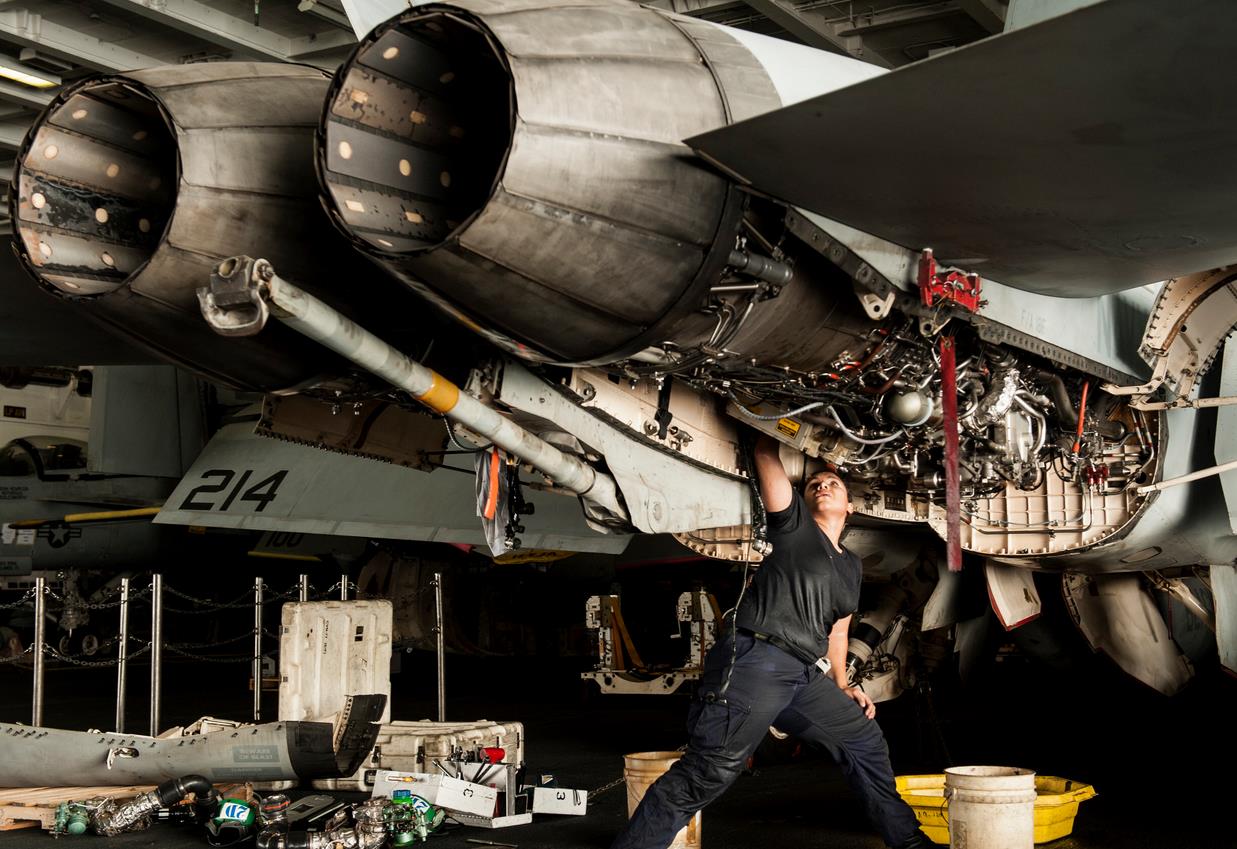
ARLINGTON, Va. – The Navy is exploring how new acquisition authorities may help save money when buying weapons, but the service still needs to find ways to control long-term sustainment and modernization costs throughout the long lives of these systems, a panel said this week.
During a panel discussion at the Defense News conference Wednesday, a host of new purchasing powers authorized by Congress were touted as a vital component of the Navy’s work to keep costs in check without hampering the development of new technologies.
A mid-tier acquisition authority, the establishment of an Accelerated Acquisition Board and the embrace of rapid prototyping are examples of tools the Navy is using to either develop new equipment or field new equipment to the fleet faster, Allison Stiller, the deputy assistant Secretary of the Navy for Research, Development and Acquisition, said in the panel discussion.
“All of these activities are intended to increase our agility and improve affordability,” Stiller said.
Rapid acquisition is going to be the norm for the military, House Armed Services seapower and projection forces subcommittee chairman Rep. Rob Wittman, (R-Va.) said, noting it speeds up the process of fielding new equipment and ultimately should save money by providing combatant commands with equipment that better matches their requirements.
“You cannot have advanced systems that take 15 or 20 years that go from concept to design to bid to production, because our adversaries don’t do that,” Wittman said during the panel.
“Our adversaries are very skilled at looking at our technology, whether they steal it through industrial espionage or whether they find it in other ways and leapfrog.”
However, controlling the costs of purchasing new equipment is just part of the work to save money. Pentagon officials and the appropriators on Capitol Hill are also considering how to save money during the entire life-span of a defense program.
“We build big things. We build capital ships, submarines. Even our aircraft typically are around for at least 20 years,” Vice Adm. William Merz, the deputy chief of naval operations for warfare systems (OPNAV N9), said during the panel.
As a result, Merz said, it is hard to make those ships, planes and weapons remain relevant over their whole lifetime unless the Navy specifically builds in the ability to easily modify them down the road.
“You’re going to see the flavor of, we’re going to build these ships and they’re going to be around for 40, 45 years with a very strong theme of adaptability and convertibility,” Merz said.
Even when ships or aircraft can be upgraded later in their life to keep up with evolving threats, the maintenance costs still dramatically increase after 15 to 20 years of service, Bryan Clark, a senior fellow at the Center of Strategic and Budgetary Assessments, said during the panel. The Navy has to consider how to control those costs and have a strategy for when it’s time to replace older equipment.
“Sustainment, the cost of owning the Navy, has increased over the past several years and will continue to increase,” Clark said.
The F/A-18E/F Super Hornet program is an example of how costs can add up over time but also how the Navy and the defense industry teamed up to squeeze some more use out of the aircraft. The recently started Service Life Extension Program will add about 3,000 more flight hours to each Super Hornet. Boeing, the Super Hornet manufacturer, plans to work on between 40 and 50 life extensions per year during.
But even with a modernization program, Clark said the Navy also has to plan for the future.
“The F/A-18E/F Super Hornets we’ve been working to death over the last several years are finally going to have to start leaving the fleet,” he said. “What’s going to take the place of those aircraft in the air wing of the future?”





